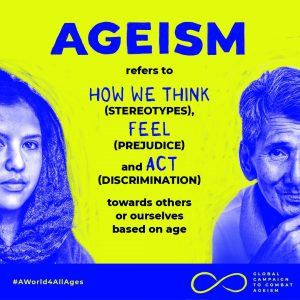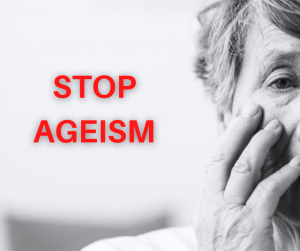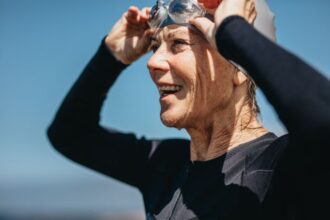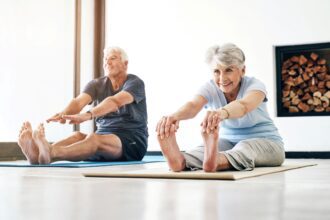Stop Ageism
Ageism, as stated by the World Health Organisation, refers to the stereotypes (how we think), prejudice (how we feel) and discrimination (how we act) towards others or oneself based on age.
The many years of experience and research shows that the term ‘ageism’ is not as well known or understood as the many other forms of prejudice and discrimination. This contributes to ageism being widely accepted, despite the negative impacts it has on people’s lives and the community.
It is very common in Australia and, surprisingly without knowing, most of us are a little bit ageist sometimes.


Ageism impacts everyone
Young children become aware of their culture’s age stereotypes, from as young as 4 years old. From this age onwards, these stereotypes guide the feelings and behaviour towards people of all different ages. These cultural stereotypes are also used to perceive and understand themselves, which can result in self-directed ageism at any age. It also exacerbates other forms of disadvantage such as sex, race and disability.
These stereotypes also negatively impact our beliefs on what it means to be older and fail to recognise the rights, contributions and value of older people in our society.
It impacts self-confidence, job opportunities, quality of life, and may end up impacting control over our own life decisions.
Unfortunately, the media often present stereotypical characters and situations that reinforce our negative beliefs and attitudes in regards to older people. This can have a profoundly negative impact on our own personal experience of growing older. For example, ageism can prevent or limit us from contributing and participating in our communities, socially, economically and more. It can even impact our physical health and longevity.
It is not only the individual impact that ageism has, it can also deny society the enormous range of benefits that can flow, economically and socially, from the full participation of older people.
Ageism is in our institutions, our relationships and ourselves; it is everywhere.
Ageism is in the policies that support healthcare rationing by age. It is in societies practices that limit opportunities for younger people contributing to decision-making in the workplace. Its in the patronizing behaviour often used in interactions with older and younger people. It is also in self-limiting behaviour, that can stem from a cultures stereotypes about what a person of a given age can do or be, or contribute.
Ageism can be combatted.
There are three main strategies used to minimise and reduce ageism: policy and law, educational activities and intergenerational interventions.
- Policy and law addresses discrimination and inequality on the basis of age and protects the human rights of everyone.
- Educational activities assist in dispelling misconceptions about different age groups, reduce prejudice and enhance empathy, by providing correct information and counter-stereotypical examples.
- Intergenerational interventions bring together people of different generations and can help breakdown existing prejudice and stereotypes.
Tackling ageism is the responsibility of everyone in society, as it affects everyone. The stereotypes that we set in our culture and how we treat older people will be exactly what we inherit as we age. Discriminating against an older person is actually discriminating against yourself – in the future.
In Australia Ageism Awareness Day provides the opportunity to draw attention to the existence and impacts of ageism. By knowing it and naming it Australia is in a stronger position to act. All of this is crucial when it comes to changing community prejudice and stereotypes.
‘Tackling Ageism’ is one of the focus areas of the Active Ageing Advisory Committee COTA is a member that actively campaigns to raise awareness of ageism and discrimination.
Want more information and what you can do to help? Please visit www.everyagecounts.org.au/
Are you unsure if you are ageist? Why not take this quick quiz to find out? The results may surprise you www.everyagecounts.org.au/
Sources:
www.who.int/news-room/q-a-detail/ageing-ageism
www.everyagecounts.org.au/take_the_quiz
www.sbs.com.au/programs/sites/sbs.com.au.programs/files/wdart_survey_oldpeople.pdf
www.campbelltown.sa.gov.au/community/activeageing/every-age-counts











